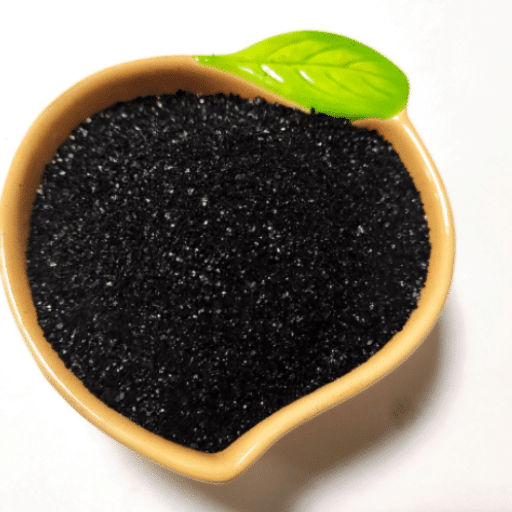Crop yields and soil health are some of the factors that make fertilizer manufacturers keep on innovating. Although it is challenging to locate a few alternatives, for there are dozens of them, potassium humate, which is an organic compound derived from lignite or leonardite, is very strong in this regard as it not only enriches fertilizers but also offers numerous benefits for both plants and soil. This all-inclusive handbook explores the multi-dimensional merits of potassium humate by outlining its part in enhancing nutrient absorption, improving soil structure, and stimulating whole plant growth. Detailed analysis will help fertilizer manufacturing companies understand how they can exploit this resource as they strive to respond to challenges facing modern farming through research into the science underlying potassium humate and its practical use.
What is Potassium Humate Fertilizer?
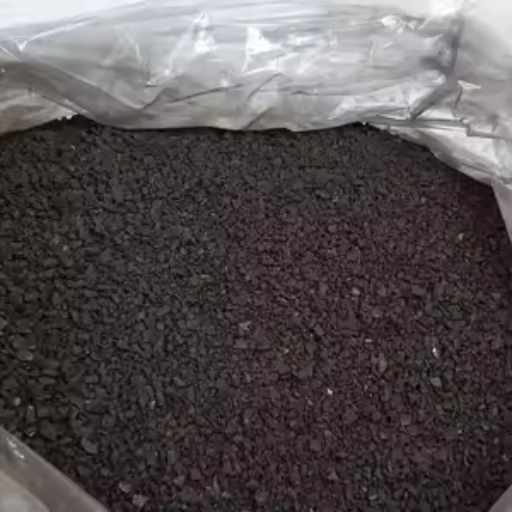
Understanding Potassium Humate
Potassium humate is an organic matter that grows naturally when plants and animals decompose. It contains a high amount of humic acid and potassium, making it valuable in agriculture as a significant constituent of humic substances. This fertilizer formulation assists in improving soil fertility, increasing water retention capacity, and enhancing nutrient availability to plants. Moreover, this compound is essential in chelating nutrients necessary for plant growth. Being able to interact with both soil components and plants makes it an invaluable resource for optimum agricultural productivity.
The Role of Humic Acid in Fertilizers
Humic acid serves as an ingredient for humic substances vital for fertilizers’ effectiveness. It causes soil aggregation, thus improving its structure and increasing air supply and root penetration, which results in healthier plant growth. In addition, humic acid acts as a natural chelator by bonding with vital elements, including nitrogen, phosphorous, and potassium, thus facilitating their absorption by the plant roots.
Key Technical Parameters:
- Cation Exchange Capacity (CEC): Humic acid can significantly increase soil’s CEC, allowing it to retain more nutrients and make them available to crop roots. High CEC values (e.g., 15-30 nmol/kg) indicate good nutrient availability.
- Soil pH: Humus application helps maintain soil acidity within 6-7, which is optimal for most crops; this improves nutrient availability while reducing the toxicity of harmful elements.
- Moisture Retention: Adding humus, specifically to sandy soils, can increase moisture-holding capacity by up to 20%, ensuring consistent plant access during dry spells.
- Nutrient Solubilization: Micronutrient solubility, such as iron or manganese, is raised by using humus, which increases their bioavailability, especially when dealing with alkaline soils.
By incorporating this substance into fertilizer mixtures, manufacturers can considerably enhance agricultural ecosystems’ nutrient use efficiency and total well-being.
Granule vs. Flake: Which Form is Better?
I am more inclined towards granules for several practical reasons, such as choosing between granular and flake forms of humic acid. These are designed to provide a more extended release mechanism, allowing a gradual supply of nutrients into the soil and maintaining its health. Moreover, larger-sized granules often have better applicability and reduced dustiness, making them cleaner to handle. On the other hand, flakes dissolve much faster and may lead to quick loss of nutrients, especially during heavy rains. Ultimately, I have chosen granules because they align with my objective of promoting long-term soil health and nutrient retention.
How is Potassium Humate Fertilizer Produced?
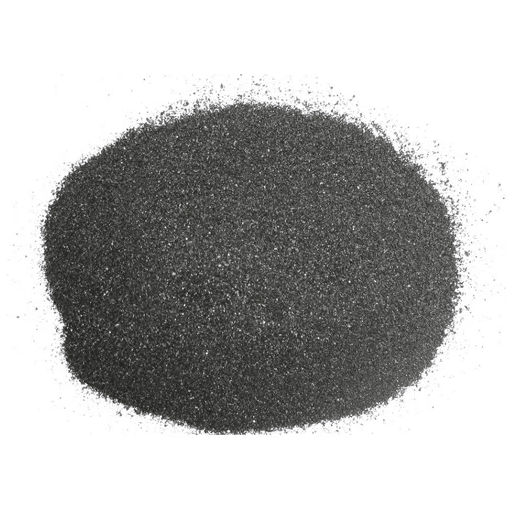
Potassium Humate Fertilizer Production Process
This involves extracting raw materials used, however, primarily from leonardite or potassium-rich minerals. The organic matter is then subjected to chemical and physical processes, including oxidation and solubilization, to improve its nutritional content.
Then, in my case, I heat the raw material with either potassium hydroxide or carbonate, which helps form a concentrated solution for humic substances. This solution is then dried, granulated, or flaked, depending on the final product required. Ultimately, rich, fertile potassium humate can promote plant growth by improving nutrient availability, moisture retention, and soil structure. I can produce high-quality products that benefit crops and soils through these steps.
Role Played By Water Soluble Potassium Humate
Water-soluble potassium humate is crucial in plants’ nutrient uptake. It forms a natural complex when dissolved in water, guiding nutrients through the soil into the roots of plants. In addition, this solubility also allows for immediate availability of potassium and humic substances that further assist in soil structure improvement and moisture conservation. Using water-soluble potassium humate increases nutrient efficiency, leading to healthier plants because it minimizes nutrient leaching and improves general soil health. I integrate this product into my fertilization strategy so that my fields receive essential nutrients they can easily absorb, thus ensuring strong development and high yield.
Quality Control during Production
Quality control plays a significant role in my production process, ensuring satisfaction with the highest standards for the potassium humate fertilizer I produce. Strict testing measures at various stages, right from raw materials, help ensure their purity and nutrient content level. Additionally, temperature and concentration levels must be closely monitored for consistency since they must remain effective throughout production. Lastly, yet importantly, laboratory analysis must be carried out on final products to determine solubility levels and nutrient contents, among other key indicators. Thus, through such quality control measures, I can always assure my customers that their products will offer maximum benefits for their crops and soils, thereby making them feel confident about the reliability and performance of the fertilizer.
Why Choose Water-Soluble Potassium Humate?
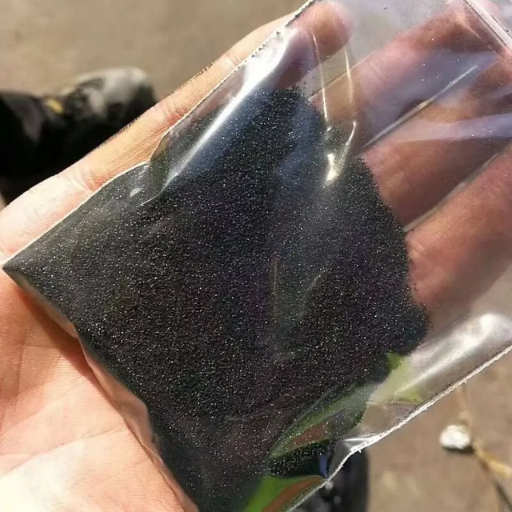
Benefits of Water-soluble Fertilizers
Water-soluble fertilizers provide several merits that are well-situated with my sustainable farming approach. These ensure, firstly, the rapid nutrient uptake necessary for plant growth, especially during critical stages of development. I like that these are applied through irrigation systems, thus promoting effective and uniform distribution and minimizing waste. Also, high solubility means that nutrients are readily available to plants, reducing the chances of nutrient lockout. My experience has taught me that using water-soluble fertilizers increases crop yield and improves the plants’ general health and resilience to various environmental stressors. This approach allows me to adjust to changes in nutrient requirements in my crops.
Improving Soil Structure and Fertility
I add organic matter to my soil management approaches to improve soil structure and fertility. Involving composting together with cover crops, water-soluble potassium humate will help me increase the soil’s moisture and nutrition holding capacity. By so doing, beneficial microbial activity is enhanced while aeration and drainage are improved, thus leading to a balanced ecosystem beneath the surface. As such, I am constantly evaluating the state of my soils through regular testing, which enables me to tailor any amendments explicitly made to meet the needs of various crops grown on it. This focal approach has helped build soil fertility and create an environment where my plants can flourish.
Application Methods for Optimal Results
During my endeavors toward maximum output using water soluble fertilizers, a few application methods have contributed significantly towards increasing the availability of nutrients, resulting in improved plant health. Firstly, I favor fertigation, an integration process between fertilizer application and irrigation. This method ensures that plants receive nutrients at their most required moments by providing accurate delivery directly to the root zone. Moreover, I also apply these fertilizers early in the morning or late afternoon to minimize evaporative losses while maximizing the amount absorbed. I also consistently check my crops, adjusting application rates depending on growth stage and soil nutrient content, thus promoting customized nutritional management. I can maximize crop yield and maintain a healthy environment for growing plants through all these.
What are the Different Types of Potassium Humate Products?
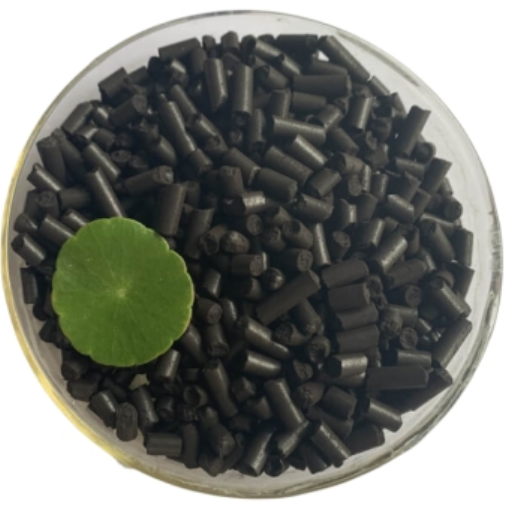
Overview of Super Potassium Humate
Super Potassium Humate is a highly concentrated organic fertilizer from Leonardite that is rich in humic substances. Known for improving soil structure, enhancing cation exchange capacity, and promoting nutrient availability, This product is popularly known for enhancing soil structure, CECs, and nutrient content and making it more available. Key technical parameters associated with Super Potassium Humate are:
It is the most soluble in over 90% of water, making it ideal for fertigation (Alam et al., 2018).
- Potassium Content: It contains approximately 30 or 50 percent potassium, which provides essential nutrients that support plant growth, mostly root system and bloom.
- Humic Acid Content: It contains about 60% humic acid, which helps mobilize nutrients inside the soil and improve the soil.
- pH Level: Typically between pH7 – pH10, Super Potassium Humates are neutral to slightly alkaline environments suitable for various crops.
Incorporating super potassium humus can significantly improve crop yields and nutrient uptake while enhancing plants’ overall health. It is valuable to any agricultural program seeking better nutrient management strategies.
Comparing Powders, Flakes, and Liquids
Whenever I examine three different types of potassium humate products, namely powders, flakes, and liquid forms, I find that there are individual advantages that suit the specific needs of farmers. Though they have high concentrations, Powders can be easily mixed with soils, thus allowing flexible application rates (Abdalla et al., 2020). In contrast, flakes dissolve slowly to allow gradual release but may require patience before results appear. Liquids, on the other hand, especially when taking into account fertigations, provide instant absorption and facilitate efficacy regarding delivery directly through roots. Therefore my selection amongst them mainly depends on my exact crop requirement and the timing of their use according to the best practices of applying them.
Specialty Products: Super Potassium Humate Shiny Flakes
Super potassium humate shiny flakes are a unique formulation that combines the benefits of potassium humate with an easy-to-use flake form. These shiny flakes can be an excellent tool for improving soil structure and increasing nutrient availability. They offer slow breakdown, hence gradual release of nutrients, thus supporting continuous plant growth and productivity. When I use these flakes, they also can make soil hold water for longer while promoting microbial activities; this makes them suitable for application in sustainable agriculture (Tahmasbian et al., 2020). Moreover, they are versatile since they can be used in different types of growing media, whether organic or conventional.
How to Choose the Right Potassium Humate Supplier?
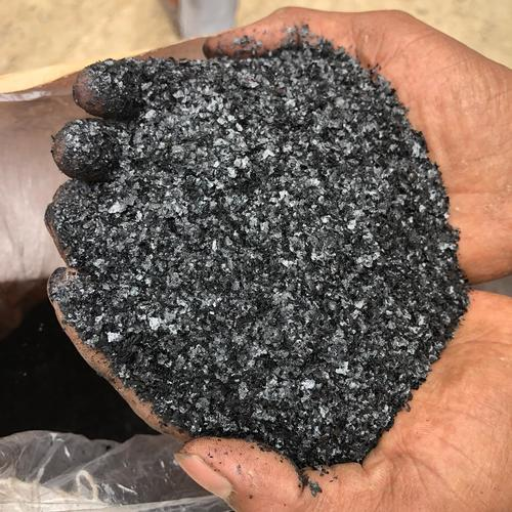
Essential Criteria for Supplier Evaluation
When looking for possible sources of potassium humate, there are several criteria that I must consider to select the most suitable partner for my farming activities. My first priority has always been their products’ quality, ensuring they conform to industry benchmarks and are supported by certifications and tests from other parties. Price competitiveness also matters; even though I strive for value, caution is exercised, particularly in cases where suppliers offer significantly lower prices since this could indicate poor quality. Besides, I look at their customer service and support, which includes technical advice and assistance that the company offers me as a buyer. Time reliability while delivering and maintaining consistency in producing goods is crucial as it affects how I carry out my farming operations because there might be delays.
Finally, I appreciate vendors who share information about sourcing raw materials and making certain products, indicating eco-friendliness and ethical practices within agriculture.
The leading suppliers in China
1. Xingtai City Puxin Industry and Trade Co., Ltd.
This provider produces potassium humate derived from leonardite using different formulations, such as granules, flakes, etc., focusing on organic farming. Some key specifications include:
- Total Humic Acid Content: 65%
- Soluble Humic Acid: 30%
- pH Level: 5-7
- Application: Suitable for drip irrigation systems and foliar sprays.
All these ISO certifications ensure they do not compromise on quality so that its customers can rely on this consistency.
2. Shijiazhuang City Horizon Chemical Industry Co., Ltd.
This supplier is known for having an extensive range of humic acid products, including high-quality potassium humate intended for soil application or hydroponics. The main technical parameters include:
- Organic Matter: 80% min.
- Moisture Content: 15% max.
- Total Nutrient Content: N: 3%, P: 5%, K: 10%
It has stringent quality control and offers farmers extensive technical support, helping them achieve their maximum yield potential.
3. Nanjing Golden Horse Chemical Co., Ltd.
This company produces different forms of potassium humate to cater to various agricultural needs. Their technical parameters include:
- Humic Acid Concentration: 70%
- Solubility in Water: 100%
- Electrolyte Stability: Suitable for high-salinity soils.
Nanjing Golden Horse maintains an emphasis on customer service so as to ensure timely delivery and help both customers and clients where needed.
These suppliers meet global quality standards, proving their commitment to sustainability and providing excellent customer services that make them reliable partners in need of potash humate.
Maintaining Consistently High Quality
I prioritize rigorous quality control measures throughout production to ensure consistently high quality in our humic acid products. I routinely test the total content of humic acids against known benchmarks established by reputable companies, such as Shijiazhuang City Horizon Chemical Industry and Nanjing Golden Horse Chemical Co., for solubility and pH levels. This is also supported through adherence to international sustainability best practices that enhance product dependability and build consumer confidence. Additionally, I remain available to constantly interact with my customers on all technical aspects, providing industry insights that would enable them to optimize their application process.
How to Maximize the Efficiency of Potassium Humate Fertilizer?
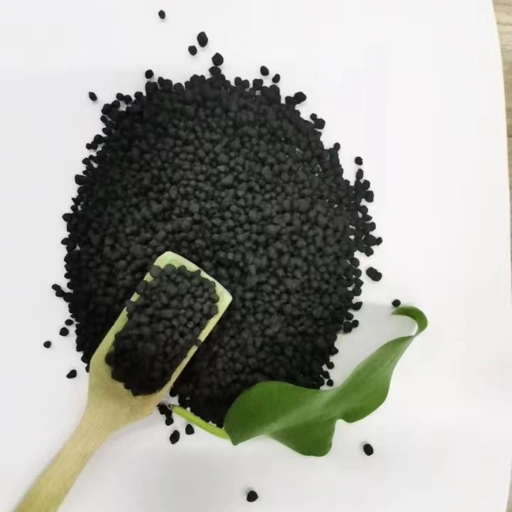
Foliar and Soil Applications
From my experience, plant growth and nutrient uptake can be significantly enhanced using potassium humate fertilizer through foliar and soil applications. The potassium humate is diluted in water for spraying on leaves as a foliar application method that allows quick absorption of essential nutrients. This strategy becomes more effective when crops are still young or under stress because it rapidly boosts them.
When applying to the soil, I mix this humate with the soil or dissolve it for irrigation. This encourages microbial activity in the soil, thereby increasing nutrient availability and promoting healthier root systems. To maximize the usefulness of this substance, I usually apply it during planting or mix it with other fertilizers so that my crops get optimal nutrition throughout their growth cycle period. Also, regular tests enable me to modify application rates depending on soil status and plant requirements, making better use of potassium humate in my farming activities.
Combining with Other Fertilizers for Enhanced Results
In incorporating potassium humate fertilizer with other fertilizers, I think about how these products combine resulting in improved overall performance. For example, blending nitrogen-based fertilizers with potassium humate increases nutrient supply while optimizing plant response. Therefore, such a combination leads to higher nitrogen retention in the ground, thus supporting robustness and high crop yield. I also add phosphorus fertilizers to the complex and potassium humate to stimulate the development of roots and increase the efficiency of the nutrient uptake rate. Properly balancing pH during these applications is critical since it dramatically determines the effectiveness level of these inputs on soils’ conditions generally; therefore, farmers should keep checking all these combinations, which vary from one crop type or health status to another, if they wish to improve their agricultural practices using such substances effectively.
Long-Term Benefits and Sustainability
According to what I have seen happening around me after using potassium humate for some time now, it cannot be limited to immediate crop yields. One of the most important benefits is its ability to enhance water retention and soil structure. Consequently, this reduces irrigation needs over time and makes crops more drought-resistant. Furthermore, potassium humate can sequester carbon in soils, thus contributing to healthier ecosystems and sustainable farming. Building up microbial diversity within it helps maintain soil fertility and ensures that my land will still be productive for other generations. Eventually, integrating potassium humate into my farming system will support healthy crops and resonate with my commitment to sustainability and environmental stewardship.
Reference sources
Frequently Asked Questions (FAQs)

Q: What are the benefits of using water-soluble potassium humate fertilizer?
A: Water soluble potassium humate fertilizer provides several benefits, including improved fertilizer efficiency, enhanced soil structure, and better plant nutrient uptake. It acts as a soil conditioner and a plant growth regulator, promoting healthier and more vigorous plant growth.
Q: How can I identify a leading potassium humate manufacturer?
A: A leading potassium humate manufacturer will offer high-quality products, such as super potassium humate flakes, potassium humate powder, and potassium humate liquid. They should also have positive reviews, certifications, and a strong presence in the agricultural market, both locally and internationally.
Q: What is the role of potassium humate powder in organic farming?
A: Potassium humate powder acts as a natural organic soil conditioner and fertilizer enhancer. It improves soil fertility, increases organic matter content, and helps retain moisture and nutrients, making it ideal for organic farming practices.
Q: How does humic acid potassium humate benefit crops?
A: Humic acid potassium humate enhances crop growth by improving soil structure and nutrient availability. It aids in chelating nutrients, making them more accessible to plant roots. Additionally, it can help reduce dependence on inorganic fertilizers and pesticides.
Q: What is the specification of potassium humate shiny flakes 98%?
A: Potassium humate shiny flakes 98% generally contain high levels of humic acid and potassium, with excellent solubility in water. They are used to improve soil health, boost plant growth, and increase crop yields. Their high purity and effectiveness make them preferred among professional potassium humate users.
Q: Can potassium humate be used in combination with NPK fertilizers?
A: Yes, potassium humate can be used in combination with NPK fertilizers. This combination enhances the efficiency of NPK fertilizers by improving nutrient uptake, reducing nutrient leaching, and promoting healthier soil microbial activity. It optimizes the use of both organic and inorganic fertilizer components.
Q: Are there any specific advantages of using potassium humate in agriculture?
A: Using potassium humate in agriculture offers several advantages, such as improved soil fertility, enhanced plant nutrition, increased stress tolerance, and reduced need for chemical fertilizers. It acts as a soil conditioner and a plant growth regulator, leading to healthier crops and higher yields.
Q: What makes a professional potassium humate manufacturer stand out?
A: A professional potassium humate manufacturer stands out by providing high-quality products like potassium humate powder, flakes, and liquid. They also offer technical support, consistent product quality, and innovation in humic acid fertilizer solutions. Their reputation is built on reliability and customer satisfaction.
Q: Why is potassium humate considered an enhancer in agriculture?
A: Potassium humate is considered an enhancer because it improves the overall health of the soil and plants. It boosts nutrient availability, enhances soil structure, and increases the efficiency of other fertilizers. Its natural organic properties make it an excellent choice for sustainable agricultural practices.
Q: What products are offered by potassium humate suppliers in China?
A: Potassium humate suppliers in China typically offer a variety of products, including potassium humate powder, potassium humate liquid, and potassium humate flakes. They may also provide specialized products like super potassium humate flakes and humic acid potassium. These products are designed to cater to different agricultural needs and improve plant health and soil quality.



